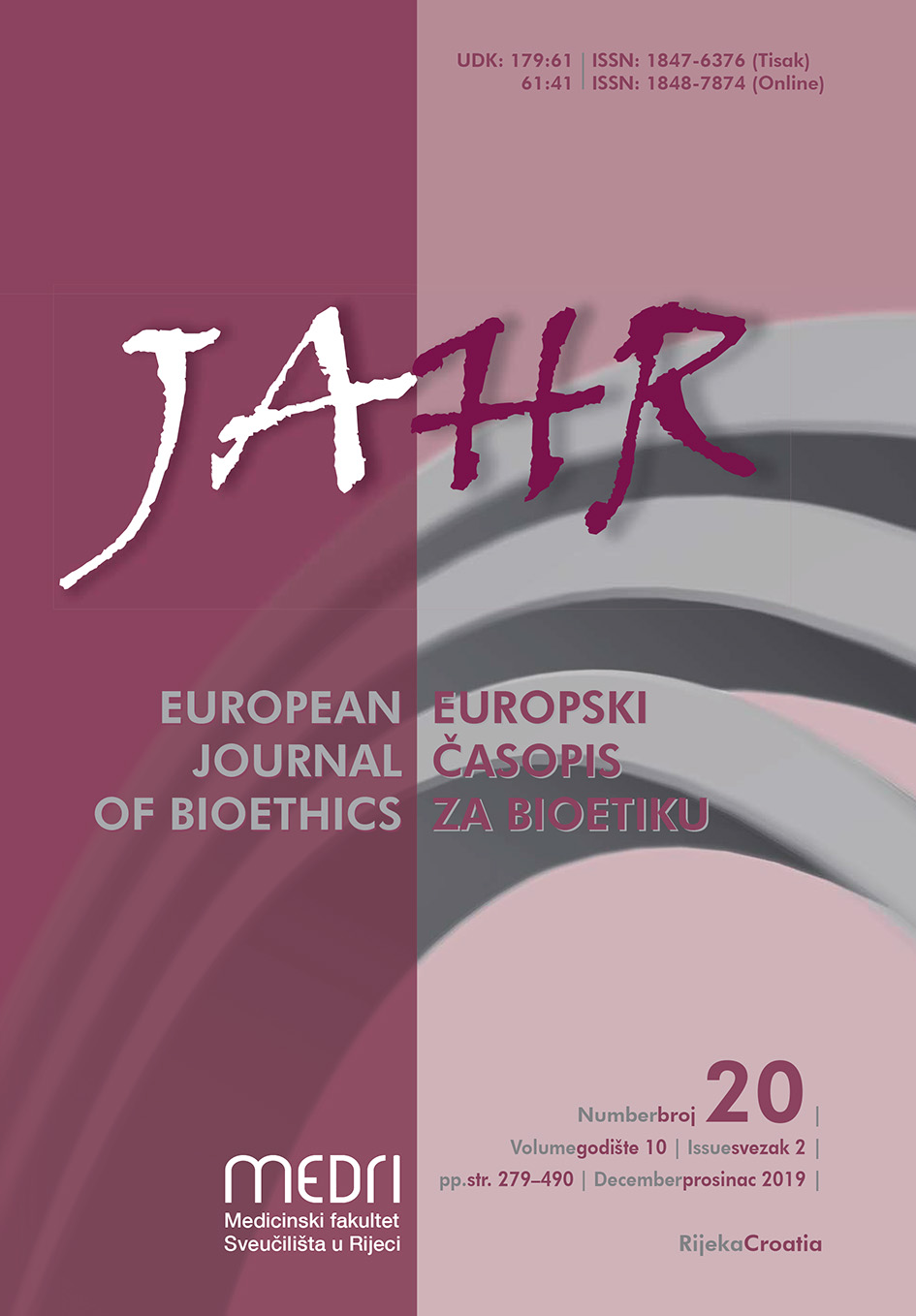Fritz Jahr as Methodological Paradigm in Bioethical Education
Keywords:
Fritz Jahr, bioethics, science, worldview, education, sensibility, synthesis, openness, innovativity, autocriticalityAbstract
https://doi.org/10.21860/j.10.2.1
The paper examines Fritz Jahr as a possible role-model in bioethical education. It consists of two parts. The first part builds upon the acknowledged data and theories about how Fritz Jahr proposed the bioethical imperative and changed his way of thinking. It provides arguments for and against known claims and expands the knowledge background with the focus on reconstructing the thought process and some presumptions that led to the formulation of bioethical imperative. The second part uses these results to infer five features to show how we can extract and define methodological features from Jahr’s personality and activity, which confirm and enhance integrative projects. An attempt has been made to understand that something such as “Jahrian methodology”, might be sensible enough to provide scientific knowledge and cultural orientation without simplifying the bios, but that it is pointless without integration with educational models, and to emphasise this I conclusively consider the role of bioethicists in the 21st century.
Downloads
Published
Issue
Section
License
Authors who publish with this journal agree to the following terms:
- Authors retain copyright and grant the journal right of first publication with the work simultaneously licensed under a Creative Commons Attribution License that allows others to share the work with an acknowledgement of the work's authorship and initial publication in this journal.
- Authors are able to enter into separate, additional contractual arrangements for the non-exclusive distribution of the journal's published version of the work (e.g., post it to an institutional repository or publish it in a book), with an acknowledgement of its initial publication in this journal.
- Authors are permitted and encouraged to post their work online (e.g., in institutional repositories or on their website) prior to and during the submission process, as it can lead to productive exchanges, as well as earlier and greater citation of published work (See The Effect of Open Access).



